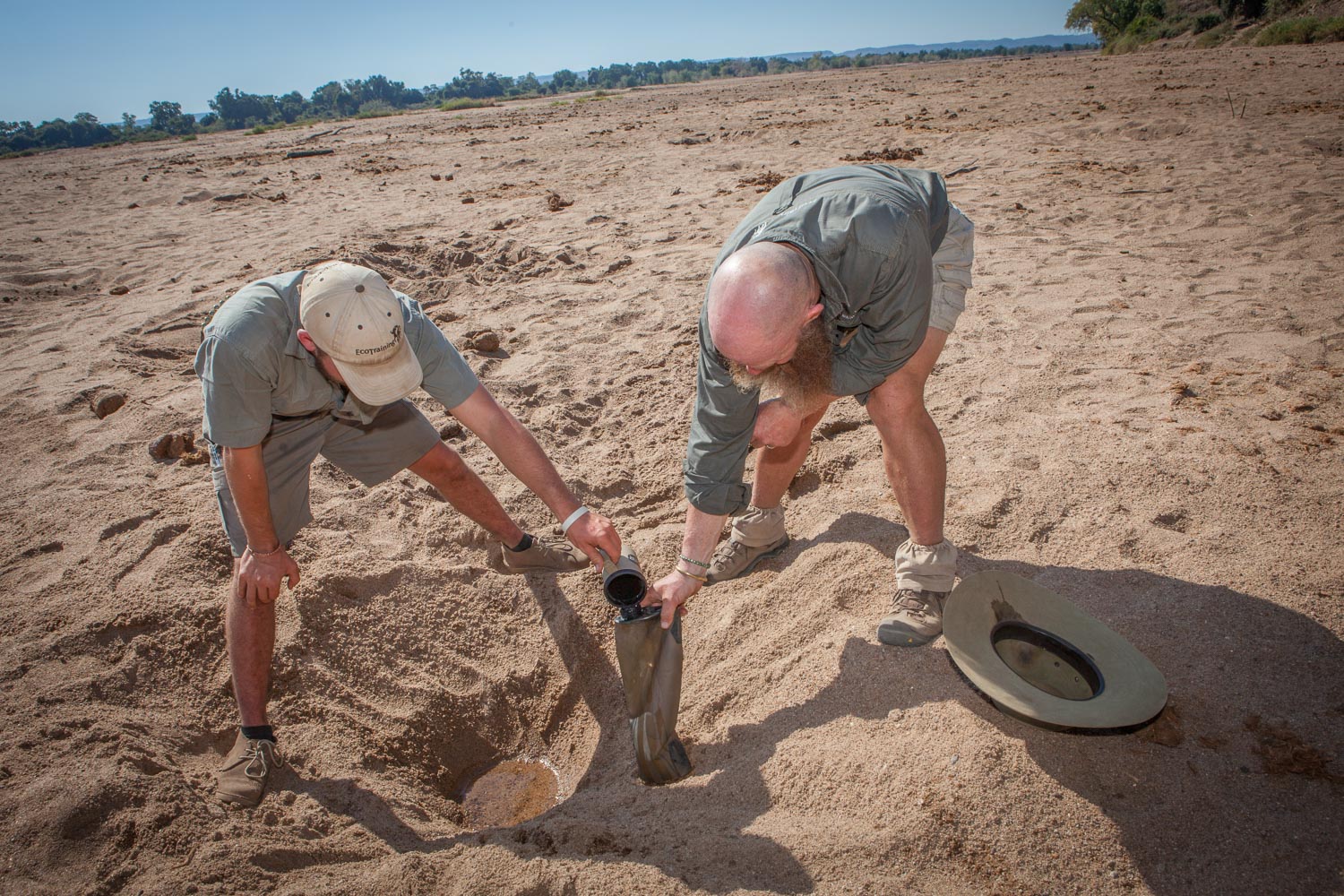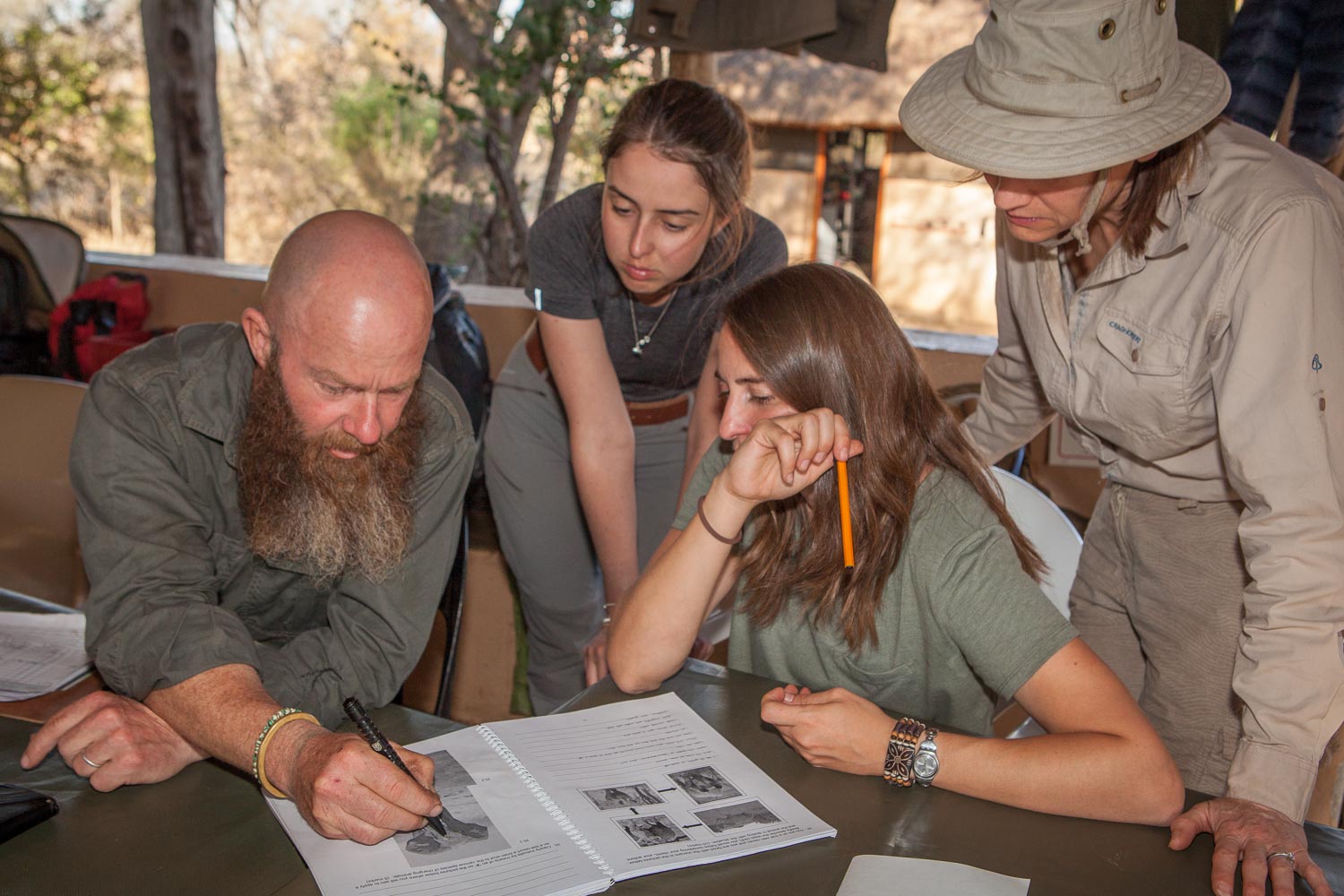MC: What did you learn during your training as a field guide that you want people to know?
BL: It started way before my training: My father is an ethnologist and he worked a lot in the woods. So I went with him a lot as a kid, and I loved it.
After my time in the military, it was a natural thing for me to become a guide. And today I’m still working as a guide. Guiding is something very personal to me. The wilderness, nature, has made me who I am today.
Wilderness and nature have made me who I am today.
When I go out into nature with people, that’s what I want them to experience, no matter who it is, no matter if they spend minutes, hours or days with me. I feel it is my responsibility to give people a sense of wilderness and let them walk away as conservationists.
MC: Can wilderness change people?
BL: Yes, there are many examples. An American woman took one of our introduction courses. A year later she contacted me and asked, “Bruce, can I go into the bush with you?” She knew nothing about equipment and very little about the bush. But the introduction course flipped a switch on her and she was unstoppable.
This year she has also booked and is bringing friends again. Some of her circle started their own initiatives in Germany and the USA to promote conservation locally. For me, that’s the best thing to give back.
MC: What makes a good field guide?
BL: Three qualities: extensive knowledge of nature, extensive knowledge of people, and the ability to build deep relationships – with people and animals.
If a Field Guide has passion, knowledge, understanding and love for the environment in which they work, that automatically transfers to their clients. If you don’t have these qualities, you won’t be a good Field Guide. In the end, guiding is not a job, but a way of life.
MC: What is the biggest threat to wilderness in South Africa?
BL: The population growth. 60% of South Africa’s population lives on the edge of Kruger National Park. And that’s also the poorest part of the population. These people are living hand-to-mouth, and more are coming.
But the infrastructure is not growing with them. There is noticeably more pressure on the environment, the consequences are poaching and illegal cattle feeding. This makes the parks and fauna and flora with it smaller and smaller.
MC: What can be done about it?
BL: My idea is to motivate people to be very conscious of nature. It is the small things that can and will change the environment. Small things can be done by everyone in every situation every day.
Don’t throw away plastic carelessly, use water sparingly, there are countless ways. There are more people at the lower levels than ‘up there’. We need to fight the battle from the bottom up, not the other way around.
Nep and Bruce draw water from a hole in the Limpopo River. The water is safe and can be drunk immediately.
MC: Have you had any special encounters in the wilderness?
BL: Oh yes, many. The most enchanting moments in the wilderness were encounters with large animals, most notably with elephants. When there’s a six-ton animal two meters away from you, you feel a connection.
You’re sitting there. You have this animal in front of you and it’s almost like you’re having a conversation. Nobody says anything. The animal is happy and you are happy, even though your heart is beating like crazy! You are absolutely and completely at peace, with yourself, with your surroundings.
Nothing else matters except the connection between the two of you… Then the animal exhales loudly and walks away. See you later.
I’m sure this sounds a little strange now, but I think the animal feels just like we do, it can feel that connection too. It’s happened to me a few times with elephants. Those are life-changing moments. And I live for those moments.
Those are life-changing moments. And those are the moments I live for.
MC: What’s the most dangerous encounter you’ve ever had in the wilderness?
BL: Oh, there have been a few. Especially since I’ve been training guides, so the last 15 years. There have been a lot of encounters, especially when you’re dealing with dangerous big game, like buffalo or hippo. We want to show the prospective guides how the animals behave.
It’s like race car driving: You know that something can happen if you’re not careful. But yes, it has been close a few times, especially with elephants. In 2008, an elephant bumped me, and my backup guide had to shoot the animal or it would have killed me. That was really dicey.
I think it’s more dangerous to cross the road in a first world country than to be here in the bush.
And the other extreme was, I also had to shoot an animal once. But you know, I have over 18,500 hours of wilderness experience, and I’m happy that only two animals had to die. I would be much happier if none of the animals had had to be shot.
But when it’s either your life, your client’s life, or the animal’s life, you don’t really have a choice. If you’re not willing to shoot, you can’t be a guide. That said, I think it’s more dangerous to cross the road in a first world country than it is to be out here in the bush.
Bruce uses photos to explain to Sophie, Martina and Kim where the brain is located in different animals. In case of an attack, the shooter has to hit it with his first shot.
MC: Do you have a motto or a quote that reflects your personal values?
BL: There’s a quote that keeps following me. It’s not mine, but it’s something I strive to do and motivate other people to do, especially guides:
Yesterday is history, tomorrow is a mystery. Now is a gift, that’s why it’s called present.
Yesterday is history, tomorrow is a mystery. Now is a gift, that’s why it’s called present.
I wish people would live like this. You know that tomorrow you could be dead. Therefore, you’d better live your life to the fullest now. Prepare for tomorrow, but live in the now.
Read now:
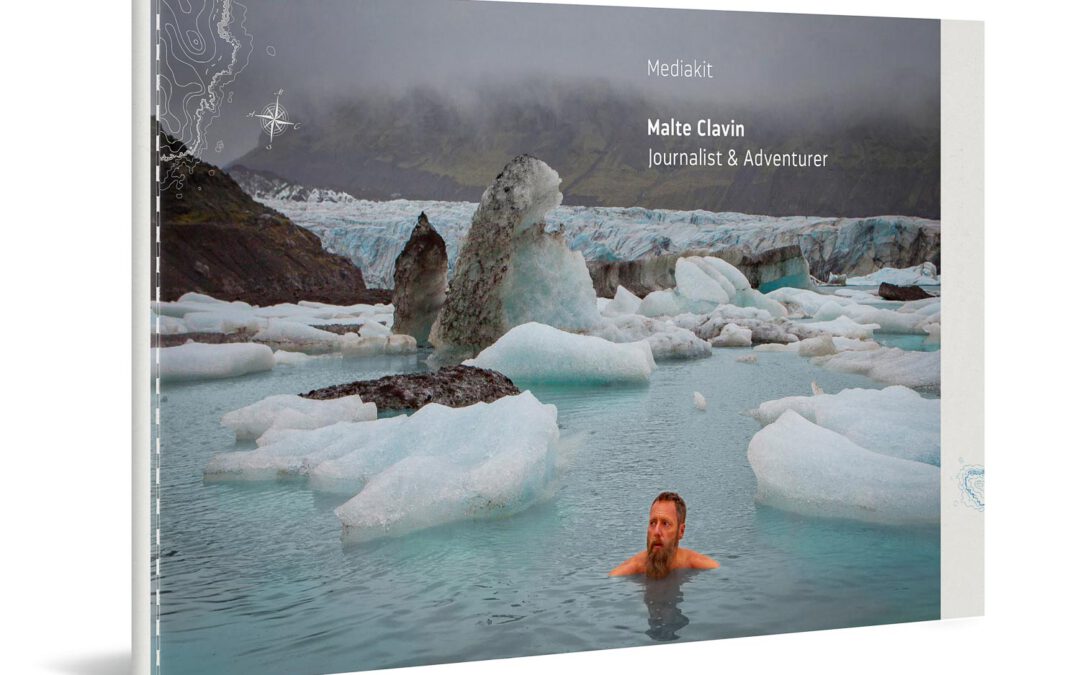
Pure inspiration
My new media kit 2025
< 1 Min.In this brand new 28-page media kit, I show you my work as an adventure journalist and speaker: Expeditions, travels, challenges – everything that excites me. Let yourself be inspired.
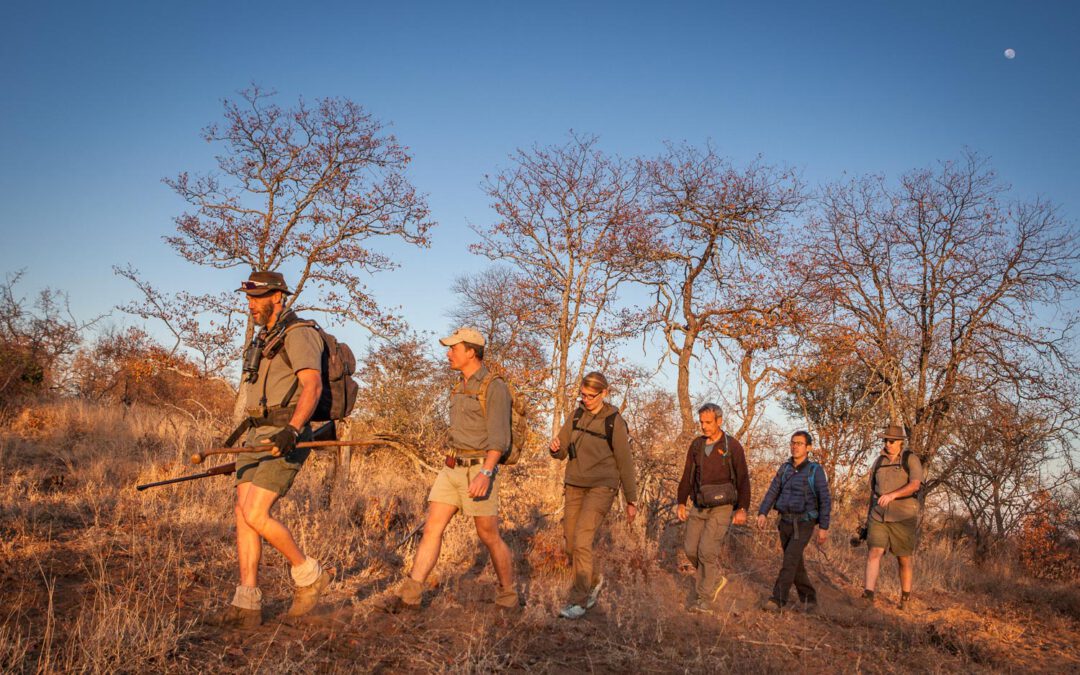
Ranger Training in South Africa
Something is up in the bush
16 Min.Exploring the wilderness on foot in the midst of lions, elephants and buffalo? You can learn to do that. In summer 2019, I will join a field guide course in South Africa.
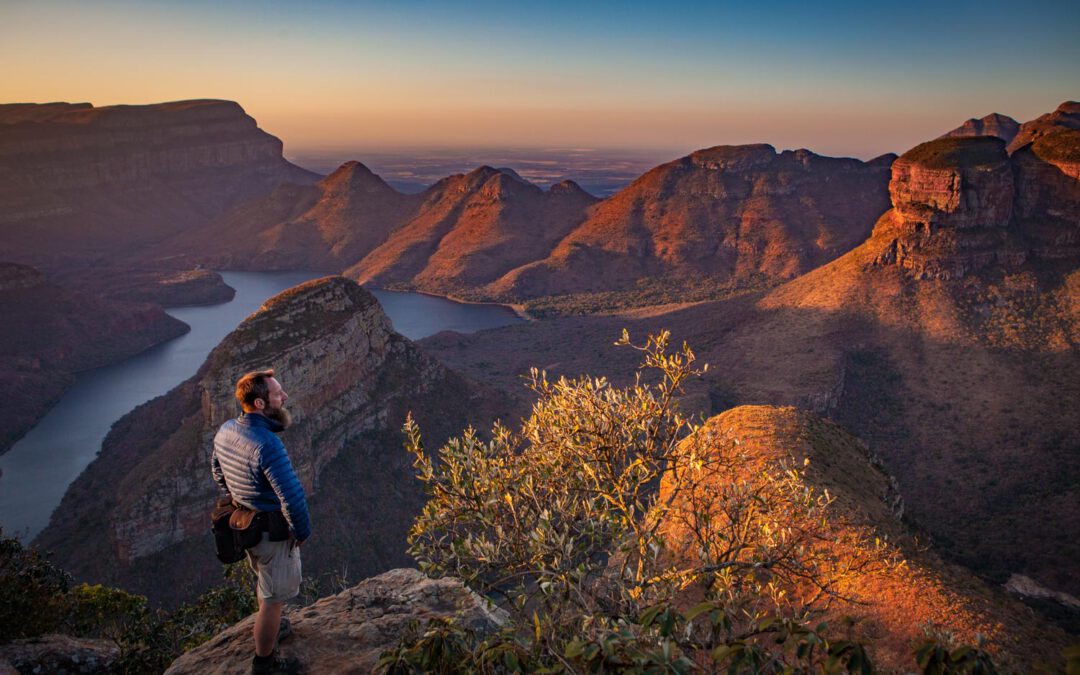
Ranger training on the edge of the Kruger National Park
South Africa photo gallery
< 1 Min.Exploring the wilderness on foot in the midst of lions, elephants and buffalo? You can learn to do that. In summer 2019, I will join a field guide course in South Africa.

